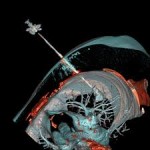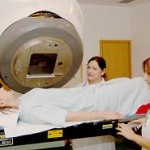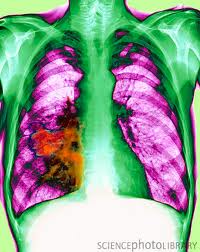Bronchial cancer is one of the most common causes of death. It is cancer that has two categories—small cell bronchial cancer and non-small cell bronchial cancer. Small cell bronchial cancer happens to 20 percent of cases (mostly smokers) and the non-small cell bronchial cancer is comprised of carcinoma (large cell, squamous cell) and adenocarcinoma. Mesothelioma is a types of bronchial cancer that is very deadly. It grows in the surrounding tissue of your lungs. This type afflicts those exposed to insulation materials and asbestos, among others.
Here are some of the facts about bronchial cancer that you may want to further discuss with your physician if you think that you or a loved one is at risk of acquiring this condition:
1. Signs and symptoms
 A person who has bronchial cancer has chest pains, weakness, swelling of the face, fever, changing of the voice (hoarseness), difficulty in swallowing, bloody phlegm or sputum, coughs, wheezing, shortness of breath, loss of appetite, and weight loss. During the early stages of bronchial cancer, symptoms may not manifest yet. Some of these signs and symptoms may be similar to other conditions, that is why doctors should let you undergo tests to rule out any of them.
A person who has bronchial cancer has chest pains, weakness, swelling of the face, fever, changing of the voice (hoarseness), difficulty in swallowing, bloody phlegm or sputum, coughs, wheezing, shortness of breath, loss of appetite, and weight loss. During the early stages of bronchial cancer, symptoms may not manifest yet. Some of these signs and symptoms may be similar to other conditions, that is why doctors should let you undergo tests to rule out any of them.
2. Causes
 Bronchial cancer is very common in smokers, particularly the small cell type. This cancer starts in the bronchi and proliferates quickly. Large tumors result to the small cell bronchial cancer and eventually spread or metastasize to the other areas of the body that includes bones, liver, and brain.
Bronchial cancer is very common in smokers, particularly the small cell type. This cancer starts in the bronchi and proliferates quickly. Large tumors result to the small cell bronchial cancer and eventually spread or metastasize to the other areas of the body that includes bones, liver, and brain.
3. Diagnosis
 Various tests can be performed to clarify if you really have bronchial cancer. At first, your doctor may auscultate you to listen to your breath sounds. If there are abnormal sounds, those may be suggestive of bronchial cancer. To have more founded results of your condition, sputum exam, imaging exam, biopsy, mediastinoscopy, and bronchoscopy are performed. For imaging exams, you are subjected to MRIs, CT scans, PET scans, and x-rays. In a biopsy, a tissue sample from the lungs is obtained and examined. Â Mediastinoscopy and bronchioscopy are procedures wherein tubes are inserted into the lungs. Complete blood count (CBC), liver function tests, thoracentesis, and bone scan could also be performed separately or could be combined with biopsy to really confirm bronchial cancer in some cases.
Various tests can be performed to clarify if you really have bronchial cancer. At first, your doctor may auscultate you to listen to your breath sounds. If there are abnormal sounds, those may be suggestive of bronchial cancer. To have more founded results of your condition, sputum exam, imaging exam, biopsy, mediastinoscopy, and bronchoscopy are performed. For imaging exams, you are subjected to MRIs, CT scans, PET scans, and x-rays. In a biopsy, a tissue sample from the lungs is obtained and examined. Â Mediastinoscopy and bronchioscopy are procedures wherein tubes are inserted into the lungs. Complete blood count (CBC), liver function tests, thoracentesis, and bone scan could also be performed separately or could be combined with biopsy to really confirm bronchial cancer in some cases.
4. Treatments
 Treating bronchial cancer takes so much patience and courage especially for the patient. Drug therapy that’s targeted is one of the latest breakthroughs in the fight against bronchial cancer. Certain formulated drugs are taken in and these lock onto the cancer cells and kill them. It is like that the medications are programmed to eliminate bronchial cancer cells. Avastin (bevacizumab) and Tarceva (erlotinib) are used in this method. These targeted medications stop tumor growth and create new supply of blood at the same time. Radiotherapy is a methid that uses intense beams of radiation to kill the bronchial cancer cells. Here, needles, tubes, or seeds are used to deliver the radiation to the targeted areas. Chemotherapy is the use of very toxic drugs to kill the bronchial cancer cells. Some of these are Taxol (paclitaxel) and Platinol (cisplatin). It can either be in the form of oral medication or injection solution. Surgery is used if the cancer or tumor is confined to a specific part of the lung or the surrounding lymph nodes of the lung.
Treating bronchial cancer takes so much patience and courage especially for the patient. Drug therapy that’s targeted is one of the latest breakthroughs in the fight against bronchial cancer. Certain formulated drugs are taken in and these lock onto the cancer cells and kill them. It is like that the medications are programmed to eliminate bronchial cancer cells. Avastin (bevacizumab) and Tarceva (erlotinib) are used in this method. These targeted medications stop tumor growth and create new supply of blood at the same time. Radiotherapy is a methid that uses intense beams of radiation to kill the bronchial cancer cells. Here, needles, tubes, or seeds are used to deliver the radiation to the targeted areas. Chemotherapy is the use of very toxic drugs to kill the bronchial cancer cells. Some of these are Taxol (paclitaxel) and Platinol (cisplatin). It can either be in the form of oral medication or injection solution. Surgery is used if the cancer or tumor is confined to a specific part of the lung or the surrounding lymph nodes of the lung.
Adjuvant therapy is often used after the surgery. This is subjecting the affected area to radiation or chemicals to make sure that the bronchial cancer cells are eradicated already or perhaps prevent the progress of the cancer cells.
5. Support
 Bronchial cancer support is the best thing that could happen to a patient with this condition. Many people have bronchial cancer and they need to be understood, too. Getting emotional support from other people could really boost up the energy and the will to live and survive their present health condition. This may be found in special foundations, friends, and family.
Bronchial cancer support is the best thing that could happen to a patient with this condition. Many people have bronchial cancer and they need to be understood, too. Getting emotional support from other people could really boost up the energy and the will to live and survive their present health condition. This may be found in special foundations, friends, and family.
6. Prevention
 Preventing bronchial cancer may be very hard to do for most people because smoking is a very hard vice to give up. Discipline and determination to give up smoking are very important to make sure that you do not develop bronchial cancer. Avoiding pollutants, hazardous fumes, and secondary smoke could also help in preventing this fatal condition.
Preventing bronchial cancer may be very hard to do for most people because smoking is a very hard vice to give up. Discipline and determination to give up smoking are very important to make sure that you do not develop bronchial cancer. Avoiding pollutants, hazardous fumes, and secondary smoke could also help in preventing this fatal condition.
You should always stay coordinated with your doctor. This assures that every move that you make will be supervised and will be right for your condition. Nobody wants for your bronchial cancer tp metastasize or spread all over your body so make sure that you stick with the treatments and lifestyle modifications.
